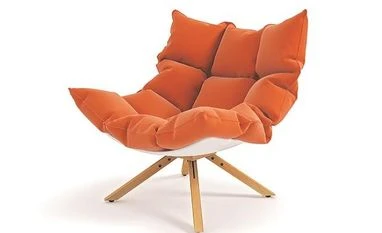Across the board, manufacturers of furniture see the shutdown of Chinese exports to the US as an opportunity for scaling up exports.
Earlier this year, before the Covid-19 pandemic led to a shutdown, Union Commerce Minister Piyush Goyal said at an event that the nation had vast resources for making good furniture, but was still importing it. If local players could make quality goods, it could also help create more employment, he said.
However, to make that happen, manufacturers say they need changes in labour laws, as well as regimes that aren’t as tax-friendly to foreign players, who are importing furniture into the country. The top countries from which India imported furniture in recent years were China, Germany, Malaysia, and Italy. The global furniture market is estimated to be worth $1.1 trillion, of which the Indian market size is less than 5 per cent.
Sunil Suresh, chairman of Stanley Lifestyles, a maker of leather furniture who also contract manufactures for Ikea, says that the government has to take a pro-industry view regarding labour laws and help local players reach global standards. “One reason that China was exporting furniture worth $100 billion is because their employees are as regimented as our army here,” Suresh said.
The other issue is duty structures that make it hard for local players to compete. “Currently, the furniture industry has zero duty on imports from FTA nations. Many Chinese companies are routing furniture through companies they have bought in countries such as Vietnam, Malaysia, Thailand, but import duty from Western nations such as the USA, Germany and Italy is only at 10 per cent,” Suresh added. “If there was a structure similar to that for imported cars, manufacturers would be more inclined to set up shop in India and work alongside local players. Imports will stop and the ecosystem will grow,” Suresh said.
Jay Gorsia, a Kolkata-based maker of high-end furniture, says the trick to ramping up the industry is easy access to land, finance, and hassle-free import of machinery and materials. “You cannot today import goose-down for sofas, and pillows and cushions. They are feathers, no animal is killed but it’s banned in India,” Gorsia says.
Dhiren Gopal, director at furniture maker Featherlite Group, says more state support is needed. “What’s needed is a level-playing, field which is absent, since mainstream companies in special economic zones can import furniture duty-free,” he said. “Creating furniture hubs around auto clusters would also encourage entrepreneurs to come forward.”
In foreign countries, auto hubs like in Detroit in the USA and Guangdong in China are all host to large furniture manufacturing units because of the common usage of materials, including foam, metals, moulded plastics and glass. The challenge is labour laws. “Navigating labour laws is a total mine-field because interpretation is left to the courts and the officers and can be done in more than one way and removing an incompetent worker is not easy,” Gopal said. “I can get a divorce faster than removing a factory worker for non-performance.” In Karnataka, an employer would have to give three warning letters, a show-cause notice, have two inquiries — one external and one internal, and then terminate an employee only if the charges are proved to be serious. “Theft is considered serious but if an employee is lazy and doesn’t perform, that may not be taken as serious,” Gopal says. “In one’s own company, one cannot hire and fire.”
There have been limited big-ticket investments in India for furniture with Ikea’s Rs 10,500 crore entry in 2018 being the largest. The other global giants like Steelcase, Haworth, Herman Miller, HNI and L-A-Z-Boy haven’t set up operations of scale yet.
Kerala-based Duroflex, which makes mattresses has also shifted into contract manufacturing with Ikea and is looking to make beds, and all other furniture that goes with bedrooms in the future. Duroflex MD Thomas Chandy says mattress makers from China have lost their main market and are already scouting India to see if they can partner and come here.
“If you want to tap a multi-billion opportunity then you have to scale up like-minded manufacturers and stop dumping from Asian countries,” he said.
Will the epidemic hurt the industry beyond repair? “It will survive, after all it is one of the oldest professions in the world. Jesus Christ’s father was a carpenter,” Gopal said. “Chairs, beds and tables will always be needed.”
Unlock 30+ premium stories daily hand-picked by our editors, across devices on browser and app.
Pick your 5 favourite companies, get a daily email with all news updates on them.
Full access to our intuitive epaper - clip, save, share articles from any device; newspaper archives from 2006.
Preferential invites to Business Standard events.
Curated newsletters on markets, personal finance, policy & politics, start-ups, technology, and more.
)